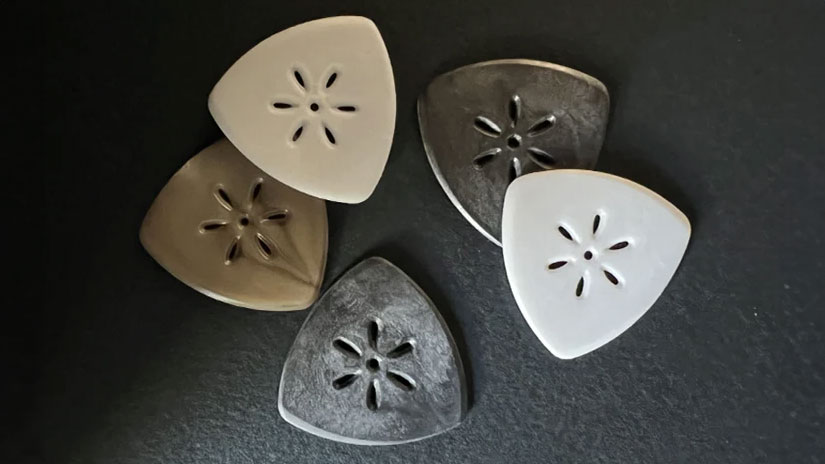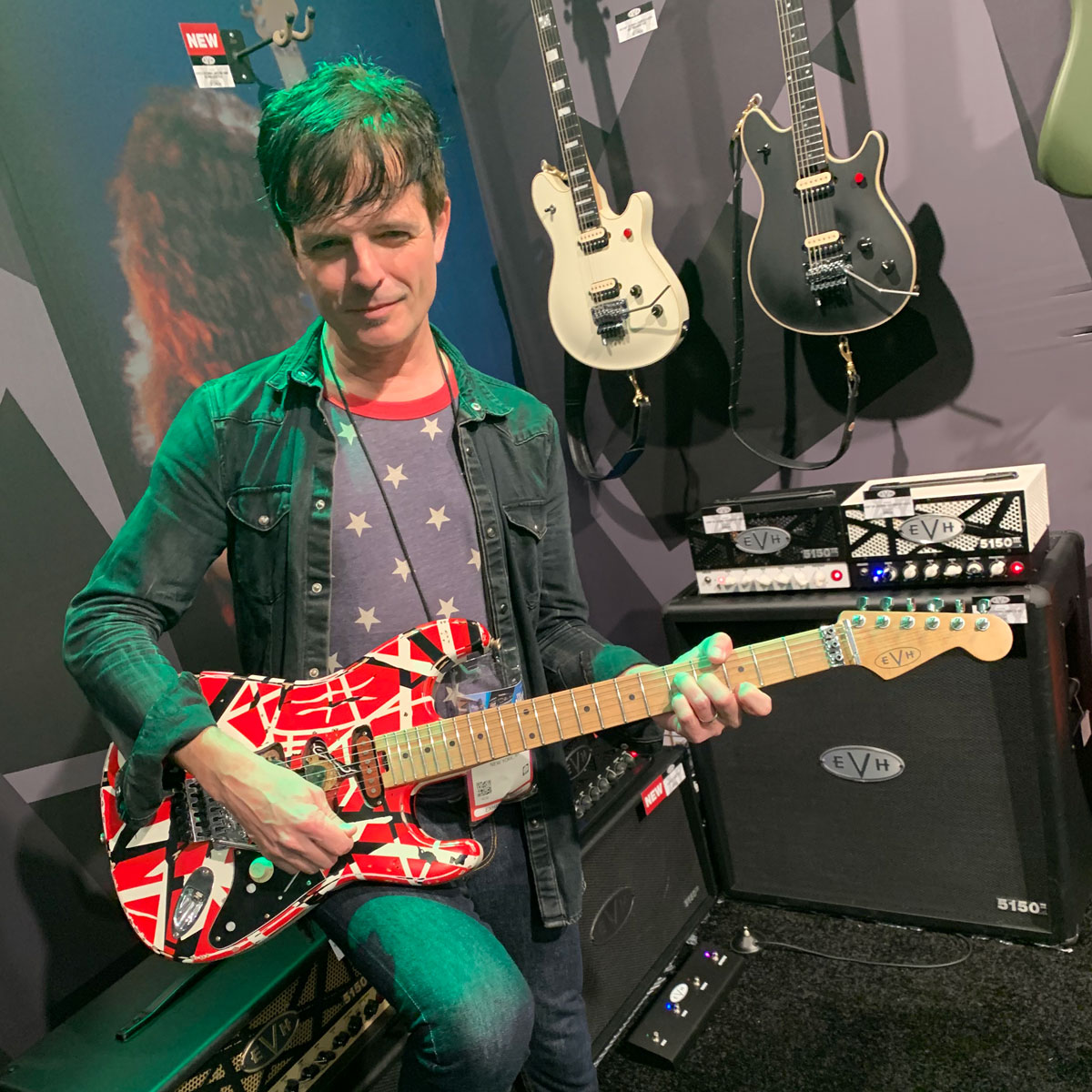Guitar World Verdict
Techpicks’ innovative use of thermoplastic materials in their picks yields a perceptible articulate and dynamic response that has an edge over traditional plectrums.
Pros
- +
Novel, innovative use of high-tech thermoplastic materials.
- +
Variety of shapes, stiffness and tonal response.
- +
Will appeal to most playing styles.
Cons
- -
Some may prefer more traditional materials, shapes and sizes of other brands.
You can trust Guitar World
Next to guitar strings, the type of pick you use is your most fundamental choice as a guitarist. You can mull over the materials, shapes and sizes of the myriad guitar picks that are available, but in the end, it’s all about which one best matches your “feel.”
Knowing this hasn’t stopped me from discovering a variety of recently developed picks that aim to improve tone, control and articulation. Case in point: Techpicks is an Italian company made up of musicians and music fans who also happen to be material engineers with backgrounds in thermoplastics.
Lately, they’ve been burning up social media with their advanced picks, which seemingly fuse materials used in the aerospace, sports and textile industries. Techpicks stand out because they have a different material makeup that’s tangibly perceived in stiffness and how each pick details nuances of attack, tonal response, low pick noise and dynamics.
The Techpicks collection is available in three geometrical shapes – the Standard (symmetrical geometry similar to the 346 pick shape, with an optimized bevel and a tapered central “flower” for grip), M (asymmetrical geometry with three different tips) and J (single sharp tip geometry with a reduced size similar to the “Jazz” pick) models.
Techpicks sent me the Standard model with five different picks (TP1 black, TP2 creamy white, TP3 cool white, TP4 brown and TP5 dark gray); it’s a fine assortment for diverse playing styles with an average thickness of 1.45mm and a width of 29.8mm.
Right off the bat, you can see and feel the difference in material between each pick with the TP2 and TP3’s almost nylon texture, the TP4 possessing a polished gloss and the TP1 and TP5 having a dry, matte feel.
Right off the bat, you can see and feel the difference in material between each pick
For high stiffness, the TP1 and TP5 are super-rigid and primed for precision in jazz and metal. The TP2, TP3 and TP4 have varying degrees of medium stiffness and work well to reduce friction from your picking hand for a speedier attack. Metal players will dig the TP1 and TP5 for the increased volume and sharper attack.
All the latest guitar news, interviews, lessons, reviews, deals and more, direct to your inbox!
Still, my favorites are the TP3 and the TP4 for their soft articulation and smoother tone that works whether I’m flatpicking an acoustic guitar or shredding on an electric. After putting in some wear and tear for a few months, I can report that these Techpicks are built to last for a while – and that, as my Italian brethren say, is “molto buono”.
- PRICE: $37 (as reviewed; set of five different picks)
- CONTACT: Techpicks
Paul Riario has been the tech/gear editor and online video presence for Guitar World for over 25 years. Paul is one of the few gear editors who has actually played and owned nearly all the original gear that most guitarists wax poetically about, and has survived this long by knowing every useless musical tidbit of classic rock, new wave, hair metal, grunge, and alternative genres. When Paul is not riding his road bike at any given moment, he remains a working musician, playing in two bands called SuperTrans Am and Radio Nashville.



